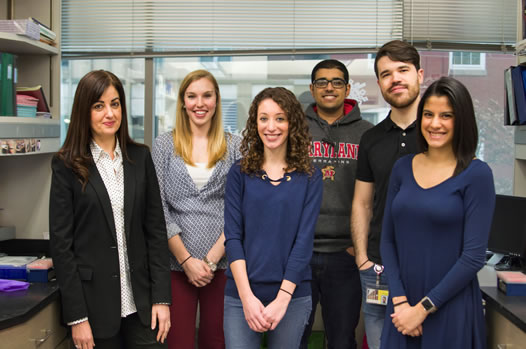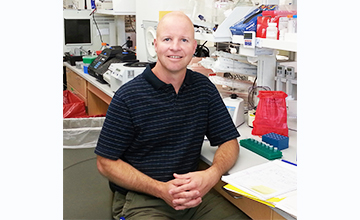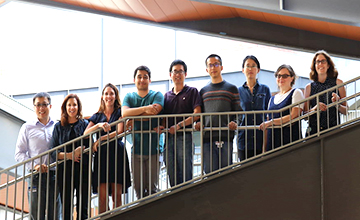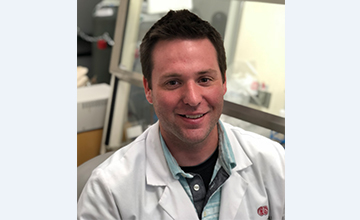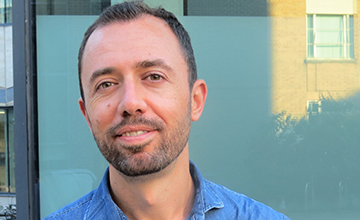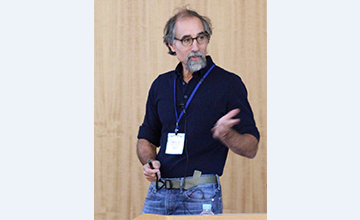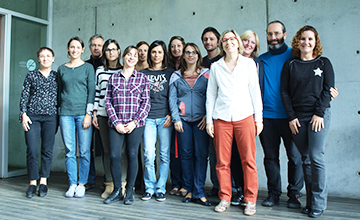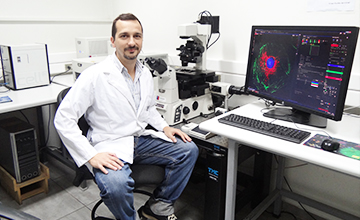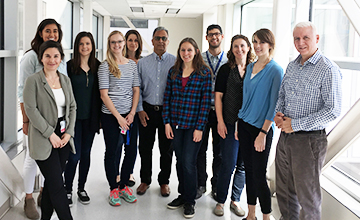MDA Resource Center: We’re Here For You
Our trained specialists are here to provide one-on-one support for every part of your journey. Send a message below or call us at 1-833-ASK-MDA1 (1-833-275-6321). If you live outside the U.S., we may be able to connect you to muscular dystrophy groups in your area, but MDA programs are only available in the U.S.
Grant - Summer 2018 - CMT – Vincent Timmerman, PhD
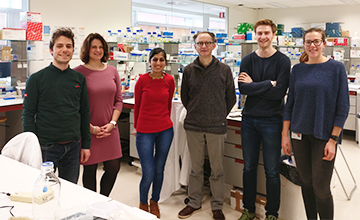
“If we can successfully validate our research hypothesis, reducing the expression of HSPB8 in vivo and decreasing the detrimental effects of the mutant protein, we may have found the first-ever treatment for dHMN patients having HSPB8 mutations. To reach this objective, we will focus on already-approved compounds and anti-sense oligonucleotides (ASOs).”
Vincent Timmerman, group leader at the University of Antwerp in Belgium, was awarded an MDA Research Grant totaling $300,000 over 3 years to study neuromuscular disease caused by HSPB8 mutations.
Patients with distal hereditary motor neuropathy, a variant of Charcot-Marie-Tooth neuropathy, have a progressive degeneration of their peripheral nerves resulting in muscle weakness and atrophy. Dr. Timmerman and colleagues were the first to report disease-causing mutations in the HSPB8 gene. The small heat shock protein B8 (HSPB8) belongs to the “stress protein family” and is expressed in various tissues and cells. HSPB8 acts as a molecular chaperone by clearing protein aggregates and reducing their toxic accumulation. This protective function has been studied in the context of cancer and neurodegenerative disease.
Building on the discovery, Dr. Timmerman’s team generated a mouse model mimicking the disease by introducing a mutation in the Hspb8 gene (a “knock-in” mouse). In addition, the team also made a model in which they deleted Hspb8 (a “knock-out” mouse), and these animals developed a mild myopathy.
The next step aims to identify therapeutic compounds that can rescue or delay the neurodegeneration observed in the knock-in model, or that can result in a milder phenotype as seen in the knock-out animals. The identified small-molecule compound acting on the expression of HSPB8 could be beneficial to treat patients affected with distal hereditary motor neuropathy and also patients with distal myopathies and related neuromuscular disorders.
Grantee: CMT – Vincent Timmerman, PhD
Grant type: Research Grant
Award total:
Institution:
Country:
